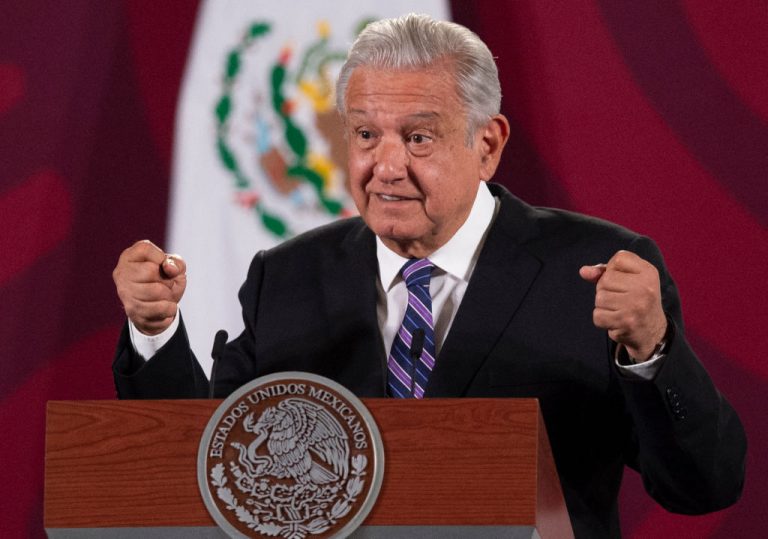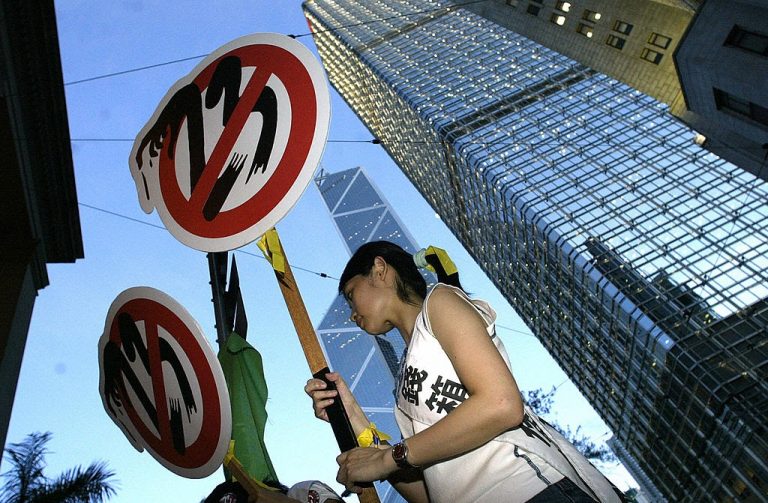Mexico’s Sensitive Investigation Unit (SIU), an elite drug enforcement squad, was disbanded a year ago after being corrupted by drug cartels, President Andres Manuel López Obrador said.
The decision came as a major blow to the U.S., which has been training the SIU through the Drug Enforcement Administration (DEA) for over 25 years in an ostensible effort to stem the flooding of America with opioids by its southern neighbor’s powerful drug cartels.
Obrador made the remarkable statement at his weekly press meeting without elaborating on why authorities had kept the public in the dark about the dismantling of the agency, which consisted of about 50 highly skilled members.
SOUTHERN BORDER AND DRUG TRAFFICKING CRISIS
- California DA Charges Fentanyl Traffickers With Manslaughter After 800% Increase In Overdose Deaths
- Mexican Drug Cartels Laundering Money Through China’s Triads After Championing US Fentanyl Push
- Biden Admin Has Released Enough Unprocessed Migrants to Fill Denver Since Taking Office: Legal Brief
- Gov. Abbott Announces Military Drills to Counter Texas Migration as Title 42 Ends
- After Defrauding Food Stamp Program Out of $2.26 Million, Two Women Head to Prison
“They strangled it,” an unnamed DEA agent told Reuters. “It shatters the bridges we spent decades putting together.”
Another DEA representative, Mike Vigil, former Chief of International Operations, shared his concerns with the wire service that the discontinuation “will mean more drugs going to the United States and more violence in Mexico.”
High-level corruption
Success
You are now signed up for our newsletter
Success
Check your email to complete sign up
The decision of the Obrador Administration to dissolve the anti-drug team was met with a lot of backlash from political opponents. However, the President justified the decision by saying the SIU had been corrupted up to its highest echelons.
“It really catches my attention that there is so much affection in certain media outlets, not all, for foreign agencies,” Obrador clarified his stance. “There is still cooperation, but that group that was supposedly of a very high strategic level was infiltrated, and its leaders are being investigated, and there are prisoners from that group.”
“It was proven that that group was infiltrated by crime. One of its leaders is being tried in the United States,” he said, probably referring to the 2017 arrest of SIU’s high-profile commander Ivan Reyes Arzate and his sentencing by a U.S. District Court for accepting bribes in exchange for turning a blind eye to a huge shipment of American-bound cocaine in 2016.
Reclaiming Mexican sovereignty
However, Obrador assured that his country would keep working together with the U.S. and other countries to keep drug crime syndicates in check “as long as Mexico’s sovereignty is respected.
“… We maintain cooperation with international security organizations, but we make sure our sovereignty is respected,” Obrador said, according to Mexico Daily News.
“You already know that order was established and we have a relationship of cooperation [with foreign governments], but with respect for our sovereignty,” he said.
“Before they entered and left the country and did…what they wanted, they even fabricated crimes,” the President added in an apparent sneer towards the DEA.
“They came in and even brought weapons in,” Obrador said, while assuring, “It’s no longer the time of those operations, like ‘Fast and Furious,’” the outlet reported.
Obrador was probably referring to a sting operation before he took office in 2018 in a ploy where U.S. authorities allowed guns to be smuggled into Mexico for the purposes of tracking them down afterward and seizing their owners.
High profile arrests
However, in late 2020, the Mexican Government passed a law that strictly curtailed foreign agents’ authorities and lifted their diplomatic immunity. Hence, Obrador said that only foreign agents who operate “according to the new legislation” would be allowed in the country.
“It emerged, as you know, after the arrest of General [Salvador] Cienfuegos,” Obrador said, as he referred to the 2020 arrest at Los Angeles International Airport of the retired general on charges of money laundering.
The apprehension purportedly invoked the President’s ire for not being informed by U.S. authorities about their plans, “They took that decision without informing us; in addition, they fabricated crimes,” he fulminated.
The new regulation and the ensuing disbanding of the SIU could thus be interpreted as retaliation by Obrador against American authorities for exceeding their welcome and offending Mexican pride.

















